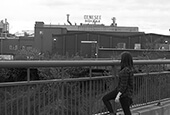Rachel McKibbens
On a Thursday at Fuego
Interview No. 205
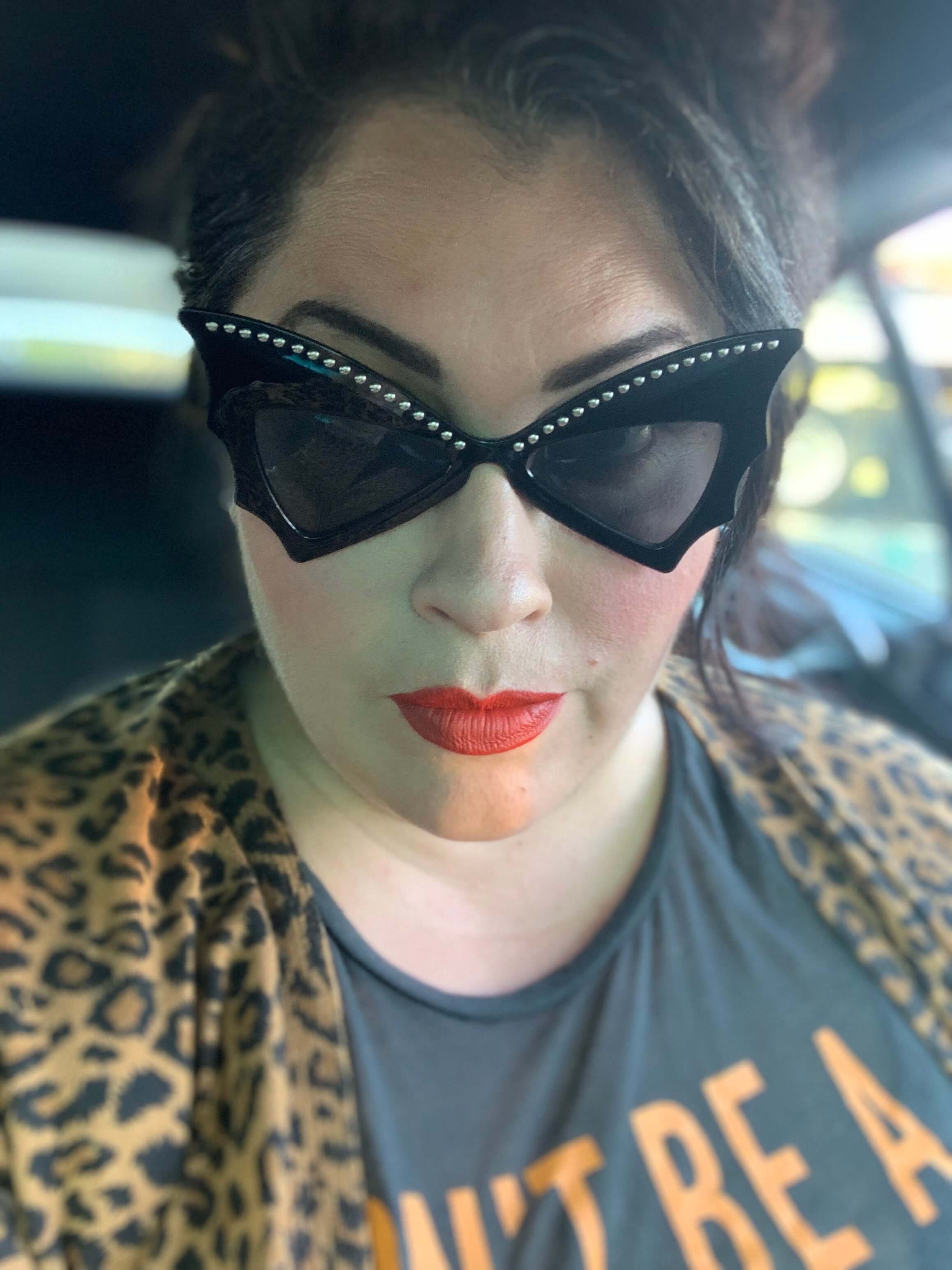

Interview by Emily Hessney Lynch.
Published November 1, 2019.
Where are you from? How did you end up in Rochester?
I grew up in Santa Ana, California, in an area populated by undocumented immigrant families, gang activity, and nothing else. I moved to Rochester from Brooklyn in November 2008. I was pregnant with our fifth kid at the time and was feeling the squeeze. It was a financial and spiritual burden to constantly fend off the city that you’re running to for work. There’s such a psychic cost to it. You’d be riding on the Q train full of people that won’t look at each other. There’s a level of solitude in a crowd that wasn’t appealing.
My partner, Jacob, was working for a VOIP company, and he offered relocating to work at their Rochester office as a potential solution. I knew of Westchester, and thought Rochester was an hour from New York City. I started looking around and researching Rochester, and recognized that it was a city in need of a very intentional kind of care and vision. There’s a coded racism in how people explain Rochester. I grew up in the hood in a self-hating Mexican family; I understood Rochester’s personality and character traits.
What were some of your first impressions of Rochester?
When I came up here, I was walking around looking at houses. I’d just won a poetry grant, and I could afford a house here. Growing up, I never went to the same school for more than two years, so I never understood what it meant to actually plant yourself somewhere and stay there. The concept of just staying somewhere was really wild to me. Sometimes I still think, “Wow, I actually opened a business here!” The love and support we’ve received, the folks I’ve met...it’s really important to me. I’m part of the WOC Art Collaborative, and it’s all of these Black and Brown matriarchs coming together to try and help navigate a city and give it a proper breakthrough experience.
What's one memory you have that captures what Rochester means to you?
In the winter, I was backing out of my driveway and got stuck. It was 12am, but my neighbors still came running with shovels and helped me get out. It’s just such a sweet thing, and it would never happen in Brooklyn.
I also love when someone is visiting us and they aren’t ready for this weather. They’ll be wrapped up in the most severe ways, and we’re in a sweater and scarf. We’ll be saying, “Oh, it’s nice out tonight!” and they’ll be bundled up.
What are some of your favorite things about Rochester?
I love how Rochester, when it’s time, will come together and defend itself and its beautiful spaces. I love summer; I love watching folks get super free. I love when the kids are just out. There’s more family just having a good, sweet time, authentic, nothing forced. Just hanging out and watching someone get their hair braided on a porch. Impromptu cookouts in a parking lot. A part of it that’s equally heartbreaking and important is all of the prayer candles in one spot. How the hood of Rochester knows that we’re gonna continue to go unrecognized and unseen, so we’re going to create our own memorials.
We actively and intentionally live in spaces that are multicultural, that haven’t been gentrified. When we fell in love with the house, the real estate agent said, “You should come back around 3:30.” To me, if we’re really talking about Rochester and the people who are the lifeblood of it, it’s the people whose taxes don’t go back to their children and the school system. It’s the candles on the street corner. A wilting foil balloon in memory of someone who was shot. The joy six feet around it where a bunch of lowrider cars will congregate, celebrate, drink, and eat--which is very similar to the Spirit Room’s intention. You learn how to treat the living by always being aware of and respecting your dead. It’s the thing that helps me love it the most. People ask us when we’re moving to Park Ave or the Wedge, but I want to be where I’m needed. I’d rather be needed than wanted.
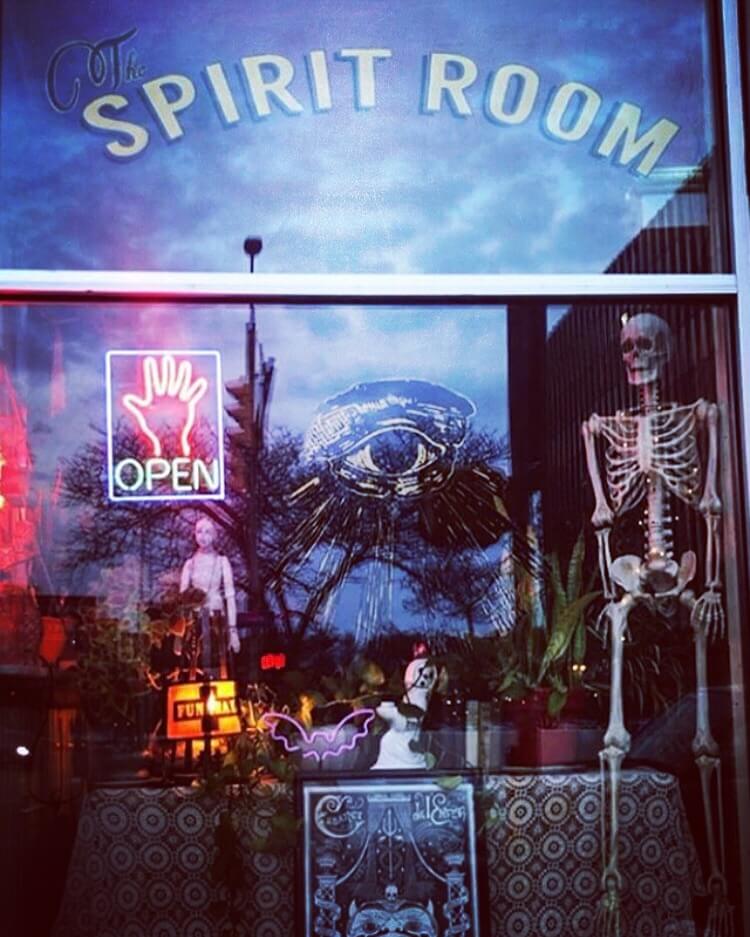

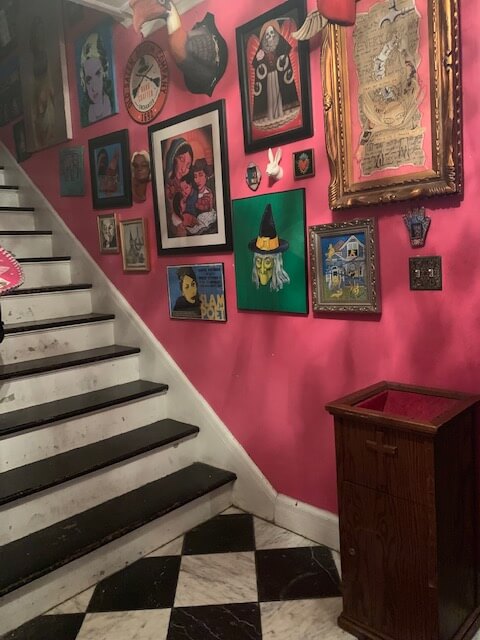

What makes Rochester unique?
It has a lot of what I love about Detroit. Its grandfather of a system helped keep it alive, and once that was shut down, the arts scene has come in and done everything it can to help rehabilitate it. Shawn Dunwoody does murals on the avenues where you’d never see a Volvo parked. Rochester has an ability to bounce back from severe socioeconomic hardships. To use art as a salve is important. I love that anyone can come off the street and create a thing in a way you can’t in NYC or any other major metropolis.
A city that has endured this much hardship and is still able to wake up and show up every morning, is a city capable of not just survival but actual liberation and empowerment.
What do you think could be improved?
Rochester needs to figure out truly what it’s willing to do for its people. I love this city tremendously and I’m not trying to glamorize its struggle; I see it and recognize it; I’m willing to name and put language to it.
At one point, our block on State Street had three Black-owned and two Mexican-owned businesses. The city wanted to have people pay for parking through 8pm rather than 6pm, which would have hurt us all. We already can’t offer lunch because of parking, and yet, there are no parking issues in Park Ave or the Wedge. Why would you do that to this block specifically? Give us a shot. Sure, make more money off parking, but not off your Black and Brown folks. The city needs to work harder at leveling the playing field--or even elevating those businesses.
And yet, they’ll never be able to suppress the joy of folks who are routinely and systematically harmed by society. You can’t take all of the joy, and that’s what I love about this city. Folks know how to celebrate themselves in spite of hardships, like through Black Pride and the Puerto Rican Festival. That’s the work I believe in. That’s the honest, authentic work.
We need to give folks within a community the tools to make their own spaces better. It’s not about throwing money from afar and infantilizing the community; instead, do the work that’s necessary to help uplift, empower, and liberate.
Rochester is an imbalanced place, but it’s teetering on some breakthroughs that will allow a better, more diverse spectrum of ideas to sit in the same room. Lots of folks from the older generation like it the way it is and don’t want it to change, but I think they can have their minds altered. We all need to be in service if you really want your city to survive.
How can people get started in making a difference?
If you are capable of committing yourself to bettering your fucking community, you better try. It hurts me whenever I see someone saying I hate this city. If I hate a dish, I’ll try to doctor it rather than just not eating it. I ask myself, “What can I do to make this better?” It’s a position of privilege to say, “How dare this city ask any more of me?”
To make a difference, people can:
- Go to Arnett Cafe, Peppa Pot, places you’ve never heard of. Go to places owned by people who don’t look like you. Go there often. Give the most neglected communities your fucking money. Share the wealth. You have to give them financial stability.
- Know when a space is not for you. Show up for Roc Black Pride. I don’t mean attend, I mean understand the necessity of places being exclusively for itself. Put the same amount of energy as you would into mainstream pride events.
- You can volunteer, you can do so much work that will help you sleep at night.
- Be willing to be present in a neighborhood. Don’t be scared. Don’t allow yourself to be intimidated by your own fear of the unknown.
If Rochester was a spirit, who would it be?
It would be a femme Daniel Boone, like Daniella Boone, with a Liberacci air to it and some Cab Calloway in there. A raccoon cap, long tuxedo tails, and the angst and inner turmoil of Phillip Seymour Hoffman. This spirit would have the ability to criticize and still love the very thing. A very feral artistry comes from Rochester, and I love that.
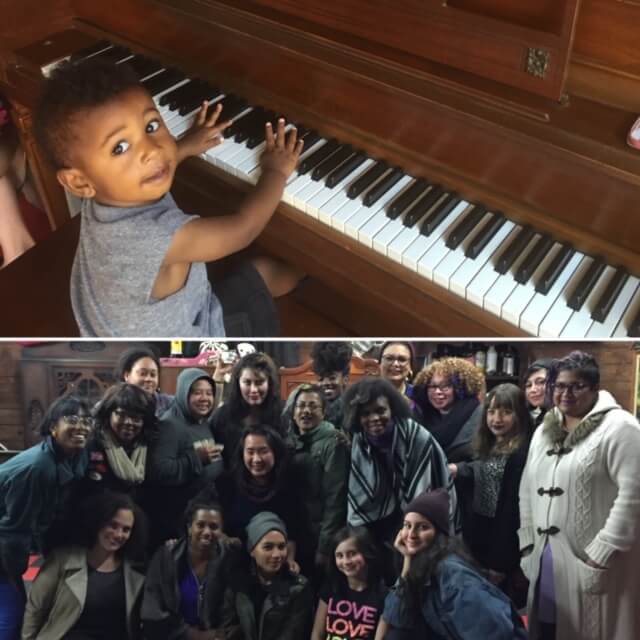

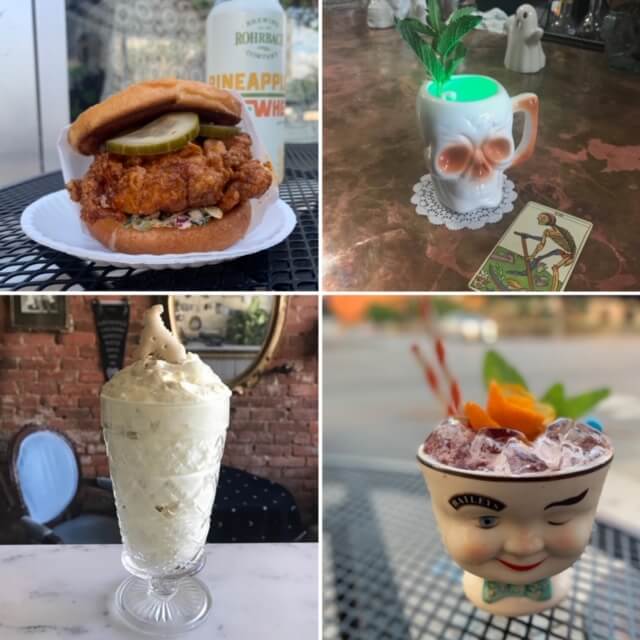

How did the Spirit Room come to be?
Jacob had always wanted a bar, but I never did. It’s people I don’t know and people who are intoxicated, and I’m an antisocial butterfly. We had the vision though, and we pitched it in 2015 at ReTalent. We had a lot of love in the room that night, our cult following from Poetry and Pie Night, who wanted Spirit Room to happen. We were told we’d be given a space, and we waited 18 months and they never gave us a space. Everything we did was unconventional, and it made everybody nervous. We were this ragtag crew of misfits. We had to start from scratch, and it took 18 months. Our grand opening was October 1, 2017. I think it’s hilarious that we’re still around and thriving.
We’re working class folks who run a craft cocktail bar, and that’s not normal. Our employees make more than us; we don’t mind that. We have the only black woman head bartender of a craft cocktail bar in Rochester. People become diehard believers. It’s a coven, not a cult, of people who recognize that you don’t have to be this pretentious craft cocktail bar. I wanted it to have a feminine energy to it.
The name came from a book on a shelf called Gin and Spirits. We wanted to tap into double entendres and the Fox Sisters. There’s no Fox Sisters museum even though they’re from this area! We dug into mediumship and the spiritualist movement. Our menu tells the story of the Fox Sisters through craft cocktails.
For those unfamiliar with the Spirit Room, can you describe the aesthetic? What was the vision, and where did you source the decor?
We had a very specific aesthetic in mind. We want it to feel like you’re going into Miss Havisham’s old bar. We brought in a fainting couch and a piranha head. We thrifted from Goodwill, Savers, and the VOA for 18 months, collecting tea cups and Noritake china and Wexford glass from the 70s. The point is it’s the grandma aesthetic. We’d bought these pews for the Pink Door Retreat from the Spiritualist Church of Divine Love, and they’re now at Spirit Room. Spirit Room had us prepare for it before we knew it was a thing. We bought those pews six years before Spirit Room was ever a concept, they’d just been in our garage. It's the space of a mystical grandma hoarder, someone who loved everything they owned.
When you first walk in, we have a Spirit Wall with black ribbon, where people can clip photos of family or friends who have passed away. That wall is packed to the ceiling with photos. There are definitely folks who have walked in, turned around, and walked the hell out, but everyone else has talked about how welcoming and comforting it is.
The Spirit Room is this amazing, inclusive space. Why was it important for you to create it, and how do you keep it that way?
If you’re willing, you can absolutely create a space that is self-editing. In our window it says “No MAGA hats allowed,” so that eliminates folks. We kicked out someone who had a suge swastika tattoo on his hand, and told him, “We don’t accept white supremacists here.” Some people are like, “Is this really your business model, to kick out paying customers?” But it’s some modicum of power we can use to change the tide. It’s keeping our patrons alive, and I don’t take that responsibility lightly.
The “customer is always right” mentality doesn’t teach people boundaries. Being in service doesn’t mean I’m a servant to you. We are in community together; we love hosting folks and being hospitable. You’re still coming into our house; it doesn’t mean you can act up.
We’re here to help nourish the city and do some recovery work within downtown. We have art that’s accessible, and readings from people you might not normally share space with. A trans femme DREAMer from Ghana may be doing a reading that’s heard by a person from Spencerport. Stories help us understand each other and overcome economic and political barriers. Let other people’s narratives live inside your body so you will make a different decision. If people came to more of our poetry readings, they probably wouldn’t fight so much on Facebook with their woke nieces and nephews. Jacob and I come from that kind of storytelling background, poetry of witness. We believe wholeheartedly in the liberation of folks can save the planet.
It’s all about finding human connection with people who don’t look like you. We invite your own self to be present and to receive narratives and perspectives that challenge you. I love getting called in by folks and learning how I’m a fuckup; it’s the most valuable thing in my life. The only good thing that came out of Facebook was being challenged, and learning to understand the difference between race and class. I grew up in an impoverished Mexican-American family; my mother was mentally ill and my dad was abusive. I understand that I still have a level of privilege I can use, and that’s an exciting thing to learn. I have this mini superpower, so I’m going to use it for good.
Rachel McKibbens is a poet, co-founder of the Spirit Room, and founder of the Pink Door retreat. For more of her perspective, visit our Instagram.

